Sample A: Ethics and Social Responsibility (Business)
Learning Objectives
By the end of the chapter, you should be able to:
- Define business ethics and explain what it means to act ethically in business.
- Explain why we study business ethics.
- Identify ethical issues that you might face in business, such as insider trading, conflicts of interest, and bribery, and explain rationalizations for unethical behaviour.
- Identify steps you can take to maintain your honesty and integrity in a business environment.
- Recognize how to avoid an ethical lapse, and why you should not rationalize when making decisions.

Show What You Know
Canada’s Leader: Passing or Failing the “Smell Test”?
Ethics is not always black and white; the ethical decision is not always obvious to all. Even leaders can fail to act ethically all the time. Recent decisions impacted two leaders.
CBC News’s reporter, E. Thompson, filed the following story on December 21, 2017. It provides a detailed account of the ethical issues surrounding Prime Minister Trudeau’s trip to Aga Khan’s private island.
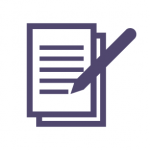 Aga Khan could face lobbying probe for Trudeau trip
Aga Khan could face lobbying probe for Trudeau trip
Democracy Watch files complaint, saying Bahamas vacation violated lobbying law.
The Aga Khan could face an investigation into allegations he violated Canada’s Lobbying Act by giving Prime Minister Justin Trudeau and his family free vacations on his private island in the Bahamas at the same time as he was discussing funding for projects.
Democracy Watch sent a letter to the Commissioner of Lobbying late Wednesday, urging her to investigate whether Prince Shah Karim Al Hussaini Aga Khan IV “violated the Lobbyists Code by giving Prime Minister Trudeau and Liberal MP Seamus O’Regan the gifts of trips to his island home”.
In the letter, Democracy Watch co-founder Duff Conacher says the Aga Khan’s actions have put Trudeau and O’Regan in a conflict of interest. It is also against the law to give a public office holder a gift that could create a sense of obligation.
“Your position must be that anyone working for or associated with a company that is registered to lobby a public office holder who gives to or does anything for that office holder… that is more than an average voter does… puts that office holder in an apparent conflict of interest,” he wrote.
The Aga Khan is the spiritual leader of millions of Ismaili Muslims and is listed as a member of the board of directors of the Aga Khan Foundation Canada. The foundation, which has received millions of dollars in federal government development aid over the years, is registered to lobby several federal government departments including the Prime Minister’s Office, although the Aga Khan is not listed among those registered to lobby on its behalf.
A search of the lobbyist registry shows the foundation has filed 132 reports since 2011 outlining its meetings with government decision makers. However, none of those reports list any meetings with Trudeau.
Representatives of the Aga Khan Foundation of Canada contacted by CBC News have yet to comment.
The call for a lobbying investigation comes in the wake of a scathing report by Ethics Commissioner Mary Dawson on Wednesday.
Dawson found that Trudeau violated four sections of the Conflict of Interest Act when he accepted a vacation on the island in the Bahamas and a ride in the Aga Khan’s personal helicopter.
While Trudeau and his family got a tropical vacation, Canadian taxpayers got a bill for more than $215,000 in transportation and staffing costs — far more than the government initially disclosed to Parliament.
Dawson also revealed that Trudeau’s trip during last year’s Christmas holidays was one of three that Trudeau or members of his family had made to the island. Dawson disclosed that Sophie Grégoire-Trudeau stayed on the island in March 2016 with a friend and their children.
Neither the Aga Khan, nor any member of his family, was on the island during their stay.
Dawson said the Aga Khan was on the island during the Trudeaus’ Christmas-time visit last year as was a “senior American official of a previous administration,” who she did not name.
In her report, Dawson describes the relationship between Trudeau and the Aga Khan, the times they met and the questions they discussed.
Among them was a bilateral meeting on May 17, 2016 that was arranged by “representatives” of the Aga Khan. After a 15-minute chat between the two men about “personal matters, the Ismaili community in general and geopolitics,” they were joined by three of the Aga Khan’s representatives, Heritage Minister Mélanie Joly, staff members from the Prime Minister’s Office and senior officials of the Privy Council Office.
Dawson’s report says the government had found a funding mechanism to allow it to contribute to the Global Centre for Pluralism’s endowment fund and Trudeau reaffirmed the government’s $15 million commitment during the meeting.
The Aga Khan’s pitch for government funding for a $200 million riverfront renewal plan in Ottawa was also discussed.
Dawson ruled that Trudeau should have recused himself from two discussions in May 2016 involving the $15 million grant.
“Two months prior to the May 2016 occasions, Mr. Trudeau’s family accepted a gift from the Aga Khan that might reasonably be seen to have been given to influence Mr. Trudeau in the exercise of an official power, duty or function as Prime Minister,” she wrote.
“For this reason, the discussions with the Privy Council Office and later with the Aga Khan about the outstanding $15 million grant to the endowment fund provided an opportunity to improperly further the private interests of the Global Centre for Pluralism.”
While the Aga Khan is not paid to lobby government (one of the criteria under the law) Conacher said he believes the Aga Khan violated the lobbying rules. Otherwise, it would create a giant loophole, he said.
“Every single corporation, business, union, non-profit organization would start using board members to give gifts to politicians if this loophole were opened up by the lobbying commissioner.”
Conacher is also calling for outgoing lobbying commissioner Karen Shepherd and incoming lobbying commissioner Nancy Bélanger to recuse themselves from ruling on the investigation because of the way Shepherd’s contract was renewed and the way Bélanger was chosen in “a secretive, PMO-controlled process.”
Manon Dion, spokeswoman for the lobbying commissioner’s office, said she cannot reveal whether they are already looking into the issue.
Thompson, E. (Dec. 21, 2017). Aga Khan could face lobbying probe for Trudeau trip. Retrieved from http://www.cbc.ca/news/politics/trudeau-aga-khan-bahamas-lobbying-1.4459561
Point to Ponder
Could the Prime Minister and family have taken an ethical version of this vacation? If yes, how? If not, why not?
The Prime Minister’s Response: http://www.cbc.ca/news/politics/trudeau-ethics-aga-khan-1.4458220
UPDATE APRIL 2019: Thompson, E., (2019. April 16). Ruling in Trudeau-AgaKhan case could change rules for unpaid lobbyists. Retrieved from https://www.cbc.ca/news/politics/trudeau-aga-khan-lobbying-investigation-1.5100169
Moving Ethics To the Business World
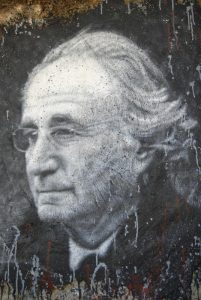
Perhaps you have heard of Bernie Madoff, founder of Bernard L. Madoff Investment Securities and former chairman of the NASDAQ stock exchange.[1] Madoff is alleged to have run a giant Ponzi scheme[2] that cheated investors of up to $65 billion. His wrongdoings won him a spot at the top of Time Magazine’s Top 10 Crooked CEOs. According to the SEC charges, Madoff convinced investors to give him large sums of money. In return, he gave them an impressive 8 percent to 12 percent return a year. But Madoff never really invested their money. Instead, he kept it for himself. He got funds to pay the first investors their return (or their money back if they asked for it) by bringing in new investors. Everything was going smoothly until the fall of 2008, when the stock market plummeted and many of his investors asked for their money. As he no longer had it, the game was over and he had to admit that the whole thing was just one big lie. Thousands of investors, including many of his wealthy friends, not-so-rich retirees who trusted him with their life savings, and charitable foundations, were financially ruined. Those harmed by Madoff either directly or indirectly were likely pleased when he was sentenced to jail for one-hundred and fifty years.
What is Business Ethics?
The Idea of Business Ethics
It’s in the best interest of a company to operate ethically. Trustworthy companies are better at attracting and keeping customers, talented employees, and capital. Those tainted by questionable ethics suffer from dwindling customer bases, employee turnover, and investor mistrust.
Let’s begin this section by addressing this question: What can individuals, organizations, and government agencies do to foster an environment of ethical behaviour in business? First, of course, we need to define the term.
What Is Ethics?
You probably already know what it means to be ethical: to know right from wrong and to know when you’re practicing one instead of the other. Business ethics is the application of ethical behaviour in a business context. Acting ethically in business means more than simply obeying applicable laws and regulations. It also means being honest, doing no harm to others, competing fairly, and declining to put your own interests above those of your company, its owners, and its workers. If you’re in business you obviously need a strong sense of what’s right and wrong. You need the personal conviction to do what’s right, even if it means doing something that’s difficult or personally disadvantageous.
Why Study Ethics?
Ideally, prison terms, heavy fines, and civil suits would discourage corporate misconduct, but, unfortunately, many experts suspect that this assumption is a bit optimistic. Whatever the condition of the ethical environment in the near future, one thing seems clear: the next generation entering business—which includes most of you—will find a world much different than the one that waited for the previous generation. Recent history tells us in no uncertain terms that today’s business students, many of whom are tomorrow’s business leaders, need a much sharper understanding of the difference between what is and isn’t ethically acceptable. As a business student, one of your key tasks is learning how to recognize and deal with the ethical challenges that will confront you. Asked what he looked for in a new hire, Warren Buffet, the world’s most successful investor, replied: “I look for three things. The first is personal integrity, the second is intelligence, and the third is a high energy level.” He paused and then added: “But if you don’t have the first, the second two don’t matter”.[3]
Identifying Ethical Issues and Dilemmas
Ethical issues are the difficult social questions that involve some level of controversy over what is the right thing to do. Environmental protection is an example of a commonly discussed ethical issue, because there can be trade-offs between environmental and economic factors.
Tips to maintain honesty and integrity
- Follow your own code of personal conduct; act according to your own convictions rather than doing what’s convenient (or profitable) at the time.
- While at work, focus on your job, not on non-work related activities, such as emails and personal phone calls.
- Don’t appropriate office supplies or products or other company resources for your own use.
- Be honest with customer, management, coworkers, competitors, and the public.
- Remember that it’s the small seemingly trivial, day-to-day activities and gestures that build your character.
Make no mistake about it: when you enter the business world, you’ll find yourself in situations in which you’ll have to choose the appropriate behaviour. How, for example, would you answer questions like the following?
- Is it OK to accept a pair of sports tickets from a supplier?
- Can I buy office supplies from my brother-in-law?
- Is it appropriate to donate company funds to a local charity?
- If I find out that a friend is about to be fired, can I warn her?
Obviously, the types of situations are numerous and varied. Fortunately, we can break them down into a few basic categories: issues of honesty and integrity, conflicts of interest and loyalty, bribes versus gifts, and whistle-blowing. Let’s look a little more closely at each of these categories.
Issues of Honesty and Integrity
Master investor Warren Buffet once told a group of business students the following: “I cannot tell you that honesty is the best policy. I can’t tell you that if you behave with perfect honesty and integrity somebody somewhere won’t behave the other way and make more money. But honesty is a good policy. You’ll do fine, you’ll sleep well at night and you’ll feel good about the example you are setting for your coworkers and the other people who care about you”.[4]
If you work for a company that settles for its employees’ merely obeying the law and following a few internal regulations, you might think about moving on. If you’re being asked to deceive customers about the quality or value of your product, you’re in an ethically unhealthy environment.
Think about this story:
“A chef put two frogs in a pot of warm soup water. The first frog smelled the onions, recognized the danger, and immediately jumped out. The second frog hesitated: The water felt good, and he decided to stay and relax for a minute. After all, he could always jump out when things got too hot (so to speak). As the water got hotter, however, the frog adapted to it, hardly noticing the change. Before long, of course, he was the main ingredient in frog-leg soup.”[5]
So, what’s the moral of the story? Don’t sit around in an ethically toxic environment and lose your integrity a little at a time; get out before the water gets too hot and your options have evaporated. Fortunately, a few rules of thumb can guide you.
Conflicts of Interest
Conflicts of interest occur when individuals must choose between taking actions that promote their personal interests over the interests of others or taking actions that don’t. A conflict can exist, for example, when an employee’s own interests interfere with, or have the potential to interfere with, the best interests of the company’s stakeholders (management, customers, and owners). Let’s say that you work for a company with a contract to cater events at your college and that your uncle owns a local bakery. Obviously, this situation could create a conflict of interest (or at least give the appearance of one—which is a problem in itself). When you’re called on to furnish desserts for a luncheon, you might be tempted to send some business your uncle’s way even if it’s not in the best interest of your employer. What should you do? You should disclose the connection to your boss, who can then arrange things so that your personal interests don’t conflict with the company’s.
The same principle holds that an employee shouldn’t use private information about an employer for personal financial benefit. Say that you learn from a coworker at your pharmaceutical company that one of its most profitable drugs will be pulled off the market because of dangerous side effects. The recall will severely hurt the company’s financial performance and cause its stock price to plummet. Before the news becomes public, you sell all the stock you own in the company. What you’ve done is called insider trading – acting on information that is not available to the general public, either by trading on it or providing it to others who trade on it. Insider trading is illegal, and you could go to jail for it.
Conflicts of Loyalty
You may one day find yourself in a bind between being loyal either to your employer or to a friend or family member. Perhaps you just learned that a coworker, a friend of yours, is about to be downsized out of his job. You also happen to know that he and his wife are getting ready to make a deposit on a house near the company headquarters. From a work standpoint, you know that you shouldn’t divulge the information. From a friendship standpoint, though, you feel it’s your duty to tell your friend. Wouldn’t he tell you if the situation were reversed? So what do you do? As tempting as it is to be loyal to your friend, you shouldn’t tell. As an employee, your primary responsibility is to your employer. You might be able to soften your dilemma by convincing a manager with the appropriate authority to tell your friend the bad news before he puts down his deposit.
Bribes Versus Gifts
It’s not uncommon in business to give and receive small gifts of appreciation, but when is a gift unacceptable? When is it really a bribe?
There’s often a fine line between a gift and a bribe. The following information may help in drawing it, because it raises key issues in determining how a gesture should be interpreted: the cost of the item, the timing of the gift, the type of gift, and the connection between the giver and the receiver. If you’re on the receiving end, it’s a good idea to refuse any item that’s overly generous or given for the purpose of influencing a decision. Because accepting even small gifts may violate company rules, always check on company policy.
Read through Bell Canada’s Code of Business Conduct detailing its recommendations for gifts. If you cannot access the image below, find it on page 10 of the document.
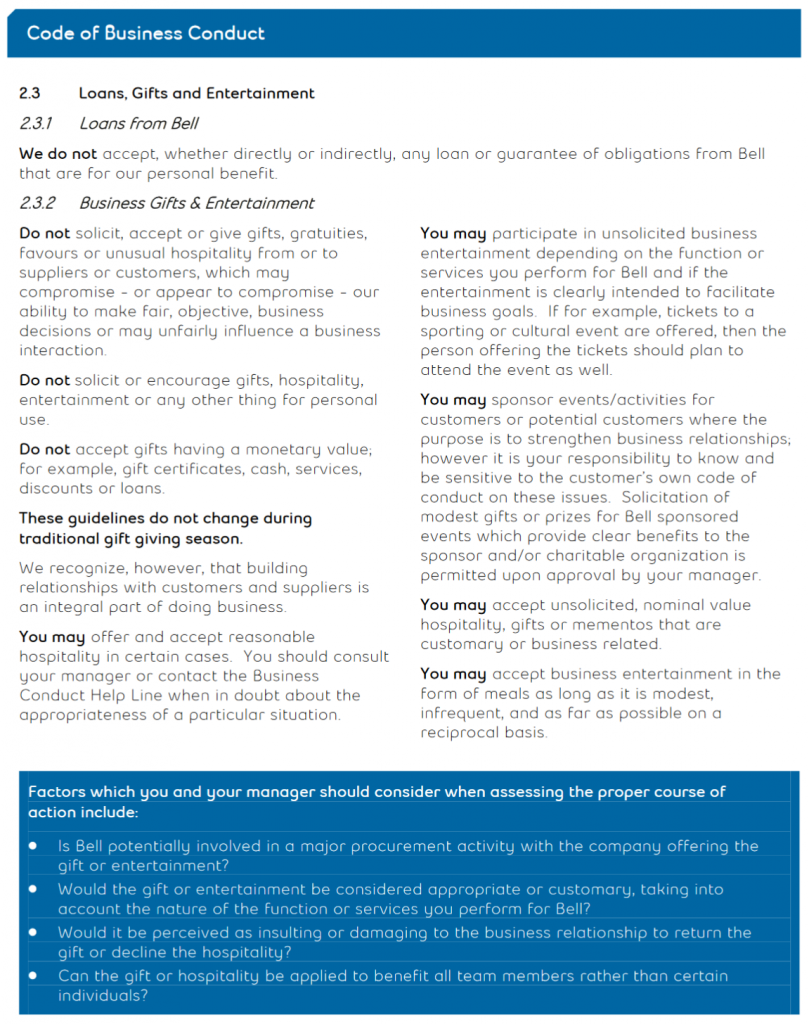
Source: Bell. (2017). Code of business conduct: Our moral compass. Retrieved from http://www.bce.ca/[/caption]
Whistleblowing
Whistleblowing was defined in 1972 by Ralph Nader as “an act of a man or a woman who, believing in the public interest overrides the interest of the organization he serves, publicly blows the whistle if the organization is involved in corrupt, illegal, fraudulent or harmful activity”.
While there are increasing incentives from governments and regulators for whistleblowers to go public about corporate misconduct, protections for whistleblowers are still very limited. Few Canadian laws pertain directly to whistleblowing and therefore whistleblowers are mostly unprotected by statute.
There is, however, a patchwork of protection provisions for whistleblowers under the Canadian Criminal Code, Public Servants Disclosure Protection Act (PSDPA), the Public Service of Ontario Act, 2006 as well as the Securities Act.
Section 425.1 of the Criminal Code, for example, states that employers may not threaten or take disciplinary action against, demote or terminate an employee in order to deter her/him from reporting information regarding an offence s/he believes has or is being committed by her/his employer to the relevant law enforcement authorities.
An employer cannot threaten an employee with negative repercussions to deter them from contacting law enforcement with information about the employer’s offence. Punishment for employers who make such threats or reprisals can include up to five years imprisonment and/or fines.
In early 2018, a Canadian whistleblower received worldwide recognition for disclosing the amount and kinds of data harvested by Cambridge Analytica through personal Facebook accounts. However, there are other, prominent Canadian whistleblowers.
Checking In
You have just digested a fair bit of information. Let’s make sure you have a handle on the concepts just covered.
The Individual Approach to Ethics
How can you make sure that you do the right thing in the business world? How should you respond to the kinds of challenges that you’ll be facing? Because your actions in the business world will be strongly influenced by your moral character, let’s begin by assessing your current moral condition. Which of the following best applies to you (select one)?
- I’m always ethical.
- I’m mostly ethical.
- I’m somewhat ethical.
- I’m seldom ethical.
- I’m never ethical.
Now that you’ve placed yourself in one of these categories, here are some general observations. Few people put themselves below the second category. Most of us are ethical most of the time, and most people assign themselves to category number two— “I’m mostly ethical.” Why don’t more people claim that they’re always ethical?
Apparently, most people realize that being ethical all the time takes a great deal of moral energy. If you placed yourself in category number two, ask yourself this question: How can I change my behaviour so that I can move up a notch? The answer to this question may be simple. Just ask yourself an easier question: How would I like to be treated in a given situation?[28]
Unfortunately, practising this philosophy might be easier in your personal life than in the business world. Ethical challenges arise in business because companies, especially large ones, have multiple stakeholders who sometimes make competing demands. Making decisions that affect multiple stakeholders isn’t easy even for seasoned managers; and for new entrants to the business world, the task can be extremely daunting. You can, however, get a head start in learning how to make ethical decisions by looking at two types of challenges that you’ll encounter in the business world: ethical dilemmas and ethical decisions.
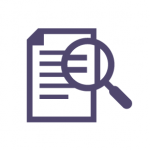 Case Study: How a Bottle Cap Restored a Reputation (Temporarily)
Case Study: How a Bottle Cap Restored a Reputation (Temporarily)
Addressing Ethical Dilemmas
An ethical dilemma is a morally problematic situation: you must choose between two or more acceptable but often opposing alternatives that are important to different groups. Experts often frame this type of situation as a “right-versus-right” decision. It’s the sort of decision that Johnson & Johnson (known as J&J) CEO James Burke had to make in 1982.[29] On September 30, twelve-year-old Mary Kellerman of Chicago died after her parents gave her Extra-Strength Tylenol. That same morning, twenty-seven-year-old Adam Janus, also of Chicago, died after taking Tylenol for minor chest pain. That night, when family members came to console his parents, Adam’s brother and his wife took Tylenol from the same bottle and died within forty-eight hours. Over the next two weeks, four more people in Chicago died after taking Tylenol. The actual connection between Tylenol and the series of deaths wasn’t made until an off-duty fireman realized from news reports that every victim had taken Tylenol. As consumers panicked, J&J pulled Tylenol off Chicago-area retail shelves. Researchers discovered Tylenol capsules containing large amounts of deadly cyanide. Because the poisoned bottles came from batches originating at different J&J plants, investigators determined that the tampering had occurred after the product had been shipped.[30]
So J&J wasn’t at fault. But CEO Burke was still faced with an extremely serious dilemma: Was it possible to respond to the tampering cases without destroying the reputation of a highly profitable brand?
Burke had two options:
- He could recall only the lots of Extra-Strength Tylenol that were found to be tainted with cyanide. In 1991, Perrier executives recalled only tainted product when they discovered that cases of their bottled water had been poisoned with benzine. This option favoured J&J financially but possibly put more people at risk.
- Burke could order a nationwide recall—of all bottles of Extra-Strength Tylenol. This option would reverse the priority of the stakeholders, putting the safety of the public above stakeholders’ financial interests.
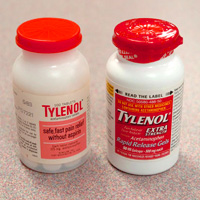
Burke opted to recall all 31 million bottles of Extra-Strength Tylenol on the market. The cost to J&J was $100 million, but public reaction was quite positive. Less than six weeks after the crisis began, Tylenol capsules were reintroduced in new tamper-resistant bottles, and by responding quickly and appropriately, J&J was eventually able to restore the Tylenol brand to its previous market position. When Burke was applauded for moral courage, he replied that he’d simply adhered to the long-standing J&J credo that put the interests of customers above those of other stakeholders. His only regret was that the perpetrator was never caught.[31]
If you’re wondering what your thought process should be if you’re confronted with an ethical dilemma, you might wish to remember the mental steps listed here—which happen to be the steps that James Burke took in addressing the Tylenol crisis. Consider how you would respond to each prompt before you expand the selection.
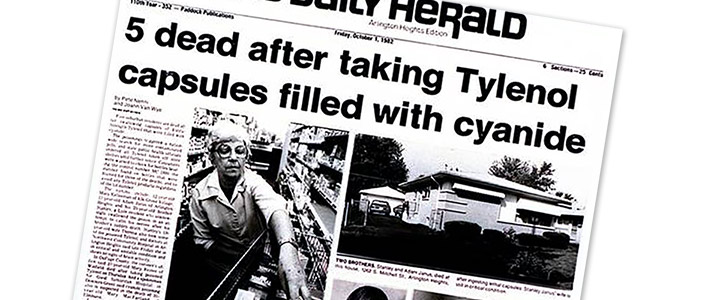
Making Ethical Decisions
In contrast to the “right-versus-right” problem posed by an ethical dilemma, an ethical decision entails a “right-versus-wrong” decision—one in which there is clearly a right (ethical) choice and a wrong (unethical or illegal) choice. When you make a decision that’s unmistakably unethical or illegal, you’ve committed an ethical lapse. If you’re presented with this type of choice, asking yourself the following questions and increase your odds of making an ethical decision.
- Is the action illegal?
- Is it unfair to some stakeholders?
- If I do it, will I feel badly about it?
- Will I be ashamed to tell my family friends, co-workers, or boss?
- Will I be embarrassed if my action is written up in the newspaper?
To test the validity of this approach, consider a point-by-point look at Trudeau’s decisions.
Here use the 5 question process for ethical decision-making to determine if Trudeau made an ethical choice in his decision to vacation on the Aga Khan’s private island. You response is anonymous and will be added to responses from other institutions using this textbook chapter.
If you answer yes to any one of these five questions when considering an ethical dilemma, odds are that you’re about to do something you shouldn’t.
Revisiting Johnson & Johnson
As discussed earlier, Johnson & Johnson received tremendous praise for the actions taken by its CEO, James Burke, in response to the 1982 Tylenol catastrophe. However, things change. To learn how a company can destroy its good reputation, let’s fast forward to 2008 and revisit J&J and its credo, which states, “We believe our first responsibility is to the doctors, nurses and patients, to mothers and fathers and all others who use our products and services. In meeting their needs everything we do must be of high quality”.[32] How could a company whose employees believed so strongly in its credo find itself under criminal and congressional investigation for a series of recalls due to defective products?[33] In a three-year period, the company recalled twenty-four products, including Children’s, Infants’ and Adults’ Tylenol, Motrin, and Benadryl;[34] 1-Day Acuvue TruEye contact lenses sold outside the U.S.;[35] and hip replacements.[36]
Unlike the Tylenol recall, no one had died from the defective products, but customers were certainly upset to find they had purchased over-the-counter medicines for themselves and their children that were potentially contaminated with dark particles or tiny specks of metal;[37] contact lenses that contained a type of acid that caused stinging or pain when inserted in the eye;[38] and defective hip implants that required patients to undergo a second hip replacement.[39]
Who bears the responsibility for these image-damaging blunders? Two individuals who were at least partially responsible were William Weldon, CEO, and Colleen Goggins, Worldwide Chairman of J&J’s Consumer Group. Weldon has been criticized for being largely invisible and publicly absent during the recalls.[40] Additionally, he admitted that he did not understand the consumer division where many of the quality control problems originated.[41] Goggins was in charge of the factories that produced many of the recalled products. She was heavily criticized by fellow employees for her excessive cost-cutting measures and her propensity to replace experienced scientists with new hires.[42] In addition, she was implicated in scheme to avoid publicly disclosing another J&J recall of a defective product.
After learning that J&J had released packets of Motrin that did not dissolve correctly, the company hired contractors to go into convenience stores and secretly buy up every pack of Motrin on the shelves. The instructions given to the contractors were the following: “You should simply ‘act’ like a regular customer while making these purchases. THERE MUST BE NO MENTION OF THIS BEING A RECALL OF THE PRODUCT!”[43] In May 2010, when Goggins appeared before a congressional committee investigating the “phantom recall,” she testified that she was not aware of the behaviour of the contractors[44] and that she had “no knowledge of instructions to contractors involved in the phantom recall to not tell store employees what they were doing.” In her September 2010 testimony to the House Committee on Oversight and Government Reform, she acknowledged that the company in fact wrote those very instructions.
Refusing to Rationalize
Despite all the good arguments in favour of doing the right thing, why do many reasonable people act unethically (at least at times)? Why do good people make bad choices? According to one study, there are four common rationalizations (excuses) for justifying misconduct:[45]
- My behaviour isn’t really illegal or immoral. Rationalizers try to convince themselves that an action is OK if it isn’t downright illegal or blatantly immoral. They tend to operate in a gray area where there’s no clear evidence that the action is wrong.
- My action is in everyone’s best interests. Some rationalizers tell themselves: “I know I lied to make the deal, but it’ll bring in a lot of business and pay a lot of bills.” They convince themselves that they’re expected to act in a certain way.[46]
- No one will find out what I’ve done. Here, the self-questioning comes down to “If I didn’t get caught, did I really do it?” The answer is yes. There’s a simple way to avoid succumbing to this rationalization: always act as if you’re being watched.
- The company will condone my action and protect me. This justification rests on a fallacy.
Here’s another rule of thumb: if you find yourself having to rationalize a decision, it’s probably a bad one.
What to Do When the Light Turns Yellow
Like our five questions, some ethical problems are fairly straightforward. Others, unfortunately, are more complicated, but it will help to think of our five-question test as a set of signals that will warn you that you’re facing a particularly tough decision— that you should think carefully about it and perhaps consult someone else. The situation is like approaching a traffic light. Red and green lights are easy; you know what they mean and exactly what to do. Yellow lights are trickier. Before you decide which pedal to hit, try posing our five questions. If you get a single yes, you’ll almost surely be better off hitting the brake.[47]
Key Takeaways
Important terms and concepts
- Business ethics is the application of ethical behaviour in a business context. Ethical (trustworthy) companies are better able to attract and keep customers, talented employees, and capital.
- Acting ethically in business means more than just obeying laws and regulations. It also means being honest, doing no harm to others, competing fairly, and declining to put your own interests above those of your employer and coworkers.
- In the business world, you’ll encounter conflicts of interest: situations in which you’ll have to choose between taking action that promotes your personal interest and action that favors the interest of others.
- Business people face two types of ethical challenges: ethical dilemmas and ethical decisions.
- An ethical dilemma is a morally problematic situation in which you must choose competing and often conflicting options which do not satisfy all stakeholders.
- An ethical decision is one in which there’s a right (ethical) choice and a wrong (unethical or downright illegal) choice.

